Faculty Spotlight: Dr. Mintoo Patel

 Dr. Mintoo Patel joined SFSC as an adjunct instructor in 2014 and went on to become a full-time biology instructor in 2020. As she’d been a scientist her adult life, she wasn’t sure that she could teach. But, in time, she came to spearhead SFSC’s venture into undergraduate research.
Dr. Mintoo Patel joined SFSC as an adjunct instructor in 2014 and went on to become a full-time biology instructor in 2020. As she’d been a scientist her adult life, she wasn’t sure that she could teach. But, in time, she came to spearhead SFSC’s venture into undergraduate research.
Dr. Patel, originally from Vadodara, India, earned her bachelor’s, master’s, and doctoral degrees in that country. Her Ph.D. is in Biochemistry and she studied at the Gujarat Cancer and Research Institute and M.S. University. She became interested in human disease and completed a post-doctoral fellowship, focusing on atherosclerosis, at Columbia University in New York. Atherosclerosis is a thickening or hardening of the arteries caused by a buildup of plaque in the inner lining of an artery.
Because of an exceptional professor, Dr. Patel’s interest in Biochemistry blossomed early in her college career. “I always liked biology to begin with,” she said. “But one of my classes was in molecular biology. My professor was amazing. I didn’t know at the time that this was what I was going to do, but I got interested. He was teaching all about DNA and I just got into it. One thing led to another and here we are – doing a lot more with DNA than ever. I took that molecular biology class in my second year of university.”
Dr. Patel met her husband, Pankaj, on one of his visits to India. He did a fellowship in gastroenterology at Columbia University at the same time Dr. Patel was doing her post-doctoral fellowship. When they married and decided on a place to call home in 2003, they came to Florida, where her husband had grown up. Pankaj is a gastroenterologist and joined Dr. Vinod Thakkar’s practice in Sebring.
After being a stay-at-home mom while her sons grew up, Dr. Patel decided to pursue teaching. Her son, Rohin, is now a senior majoring in Engineering at Columbia University and her other son, Devam, is a freshman at the University of Central Florida.
While an adjunct instructor at SFSC, Dr. Patel offered the first undergraduate research class in 2016. She said that, at first, the labs weren’t as well equipped as they are now, so the students started with simple projects.
“We did a lot of DNA barcoding at that time,” she said. “With DNA barcoding, you can identify a species based on the genetic sequences. I can pick up a leaf and take the DNA and identify the species from that. I don’t have to look at the plant.”
So, Dr. Patel asked her students to choose what they wanted to barcode, while keeping in mind that it could be done in many different fields.
“Somebody chose to do it on fish substitution in food products,” she said. “You go to a restaurant, you order a particular type of fish, but you may not get that fish. You might get something else. The project identified types of fish by taking a little bit of tissue. That was our first dabbling in DNA barcoding.”
Another student chose to barcode Florida’s rare and endemic plants. The project was close to home, as Highlands County sits on the Lake Wales Ridge, a 100-mile sand ridge that supports a large diversity of ancient plants and is considered a highly imperiled ecosystem. In fact, it is part of the 36th global diversity hotspot.
“We applied our DNA barcoding to the conservation of that area,” Dr. Patel said. “If you go out in the wild and see a rare plant, you need to preserve it. But how do you know that it’s a rare plant? You need a well-trained taxonomist (a biologist that groups organisms into categories/classifications) to understand that this is a rare plant. Although scientists at Bok Tower Sanctuary in Lake Wales and Archbold Biological Station in Venus are working on conserving the plants, DNA coding was not being done. So, we did that.”
In fact, Dr. Patel and her students uploaded their results into the National Center for Biotechnology Information (NCBI) GenBank®, a database that provides access within the scientific community to the most up-to-date and comprehensive DNA sequence information. Her recent work focuses on cancer and oral microbiome.
“Undergraduate research gives students a fresh perspective,” Dr. Patel said. “With textbook knowledge, they read, they take the exams, and may forget it afterward. But with research, it opens their eyes to what’s going on in the world. They pick up a problem in the world and try to answer the questions scientifically. They learn how to think critically about how to solve that problem. Even though we work on a tiny bit of a larger problem, it shows students the whole process of scientific inquiry. Also, it can be applied to any research field that the student goes into. When they move on to a university, they know the lab procedures and how to conduct research, so it makes them better candidates for research at the universities.”
Dr. Patel enjoys teaching students and opening them up to new perspectives on the world. Perhaps her love of teaching and celebrating the accomplishments of her students comes from her own background. “I have been raised to live life with a purpose and responsibility and to help others to create a happy and healthy community,” she said.

